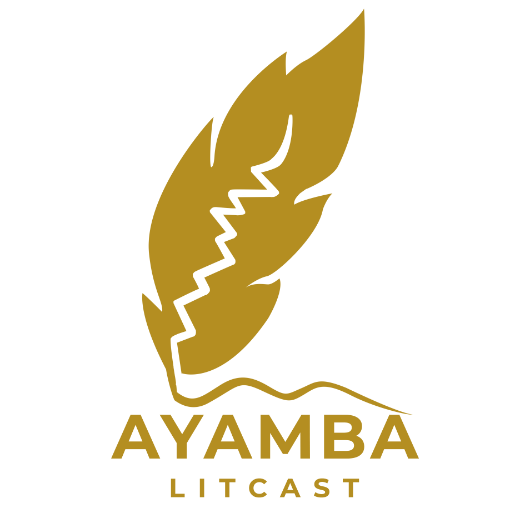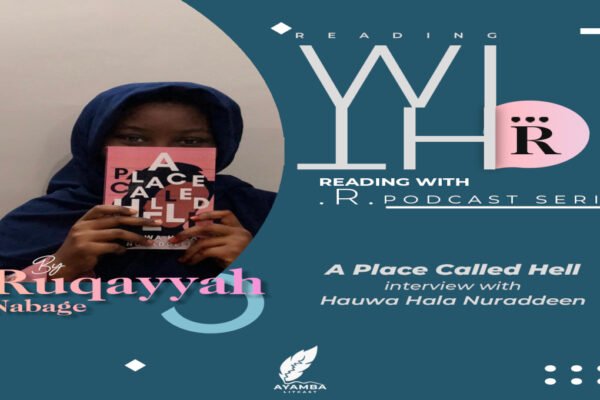Hauwa Nuhu Shaffii in conversation with Daisy Odey
This interview was conducted in May, 2019.
“Poetry acts as a mirror for me. I use it to think clearly.”
Ayamba: When did you first realise that writing was the thing you really wanted to do?
Daisy Odey: In 2015, I asked myself what I didn’t mind doing whether or not I got paid. I found it to be reading and writing. I never looked back since.
Ayamba: That’s interesting. Had you been an ardent reader before then?
Daisy: Yes. I’ve been a reader forever. I grew up reading, and spent my teenage years using books as an escape. But writing came later.
Ayamba: That is almost always instrumental to the lives of writers, I’ve found. What does poetry mean to you? What does it do for you?
Daisy: Poetry acts as a mirror for me. I use it to think clearly. Like I write, write, write, then, I read the poem and it tells me what I think about whatever it is that’s bothering me. I think better on paper. So often, I come to the poem as both the writer and the reader.
Ayamba: I am totally for the idea of coming to a poem both as the writer and the reader. And it reminds me of the old writing advice to “write towards what you don’t know”. Now, speaking of writing advice, what’s the most valuable writing advice you’ve received and how has it influenced your journey?
Daisy: Wow, most valuable advice came from Elnathan John and it was more than one. 1. Read the right books (this completely changed my reading taste). 2. Do not hurry to self-publish. In his words, you can only publish for the first time once.
Ayamba: I’ve received that first advice a lot too but I’m always haunted by a question which I’ll now pose to you: how do we know what the right books are?
Daisy: Lol, that’s the same question I asked him. He defines them as the hard books, the books no one wants to read because they’re too difficult. An example would be ‘classics’. He said if you read what everyone is reading, you’d write what everyone is writing.
Ayamba: Precisely! Now let’s talk about your book. Your chapbook, Fragments in a Closet just came out. drum roll
How does it feel to be an author? And what was the process of putting the book together like?
Daisy: Lol. I would be lying if I said writing the book was deliberate. I just kept writing and writing and in no time I had the book. I actually was putting a manuscript of all my published poems together. And Su’eddie Agema of Sevhage was very instrumental. He had been telling me to put my poems together. He painstakingly edited and sent me back the ready-to-submit manuscript. It took a lot of people’s faith in me to get that work done. So I’m grateful for my people.
How does it feel to be an author? I’m still processing all the emotions. I’d tell you when I have a good answer. For now, I’m still confused.
Ayamba: This is really beautiful. I think we don’t talk enough about the influence of our friends in ensuring that we maintain excellence in our work. It is so, so instrumental. And I like that you talk about the editing process also. That’s another very important part of writing. Have you ever gotten a poem right the first time?
Daisy: Yes I have. When I got my edits back from Kwame, he loved a poem that was a one hit wonder, even the poem fragments was written in one sitting. There are those days of magic but most poems are built not born. They need time and patience and pulling apart, putting back together. When a poem says what it needs to say, you’d know. Until then ….
Ayamba: Those “in one sitting poems” are absolute miracles and wonder. I say this because many times, I have spent so many months trying to get a single poem right. There’s a particular poem I’ve been working on since 2016 but I still have not gotten it right. However, I do have two poems that were written in one sitting and have never needed one word removed or added and it’s a beautiful experience.
Which books would you consider having shaped you as a writer?
Daisy: Beloved by Toni Morrison gave me permission when it comes to language. Also there’s The Color Purple. Ocean Vuong’s Night Sky with Exit Wounds, and the poetry we used to enjoy on Facebook from David Ishaya, Saddiq Dzukogi, Romeo Oriogun, and you Hauwa, though you’ve been depriving us this days. These things made a lot of difference.
Ayamba: LOL @ depriving. Ocean Vuong’s poetry book is a wonder! Have you read the first chapter of his forthcoming novel published on the New Yorker?
Daisy: I haven’t! Like that is one book I cannot wait to get my hands on. I recently read his essay on the Adroit Journal.
Ayamba: I read that first chapter and for a very long time I was not alright. The way Ocean Vuong reinvented language in that work was simply overwhelming. I can’t wait to read the book.
What books are on your to-read list?
Daisy: I’d go and look for the essay.
Ayamba: https://www.newyorker.com/culture/personal-history/a-letter-to-my-mother-that-she-will-never-read
There you go.
Daisy: An Orchestra of Minorities by Chigozie Obioma, Audre Lorde’s Sister Outsider, this year’s APBF box set of poetry chapbooks, to list a few.
Ayamba: Ookay, that’s a fine list. We’re wrapping up so can you teach me to say “How are you?” in your language?
Daisy: Lol ‘ wo yi na? ‘
Ayamba: Thank you! Which language?
Daisy: Betae, a tribe in Obudu.
Ayamba: Thank you so much for your time. I enjoyed this.
Daisy Odey writes from Jos, Nigeria. Her chapbook Fragments in a closet (Akhasic books, 2019) was published in the APBF new generation African poets chap book box set (2019). Her poems have appeared in the Ake review (3rd edition), the Kalahari Review, Enkare review, Saraba (Issue 22), Praxis Magazine International Women’s Day Anthology 2017 and other publications. She was a guest at the 2018 Lagos international festival 2018, KADINVEST summit 2018 and others.
The interviewer, Hauwa Nuhu Shaffii has her bio in the members’ profile section.



